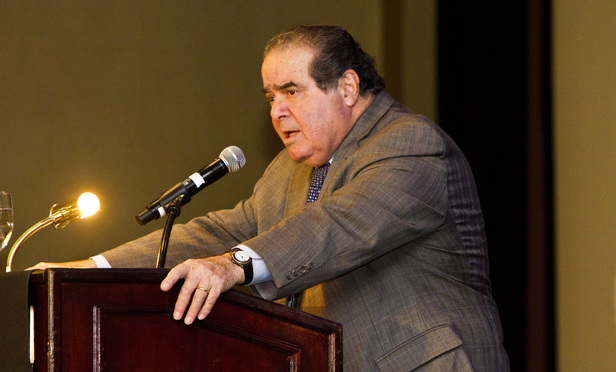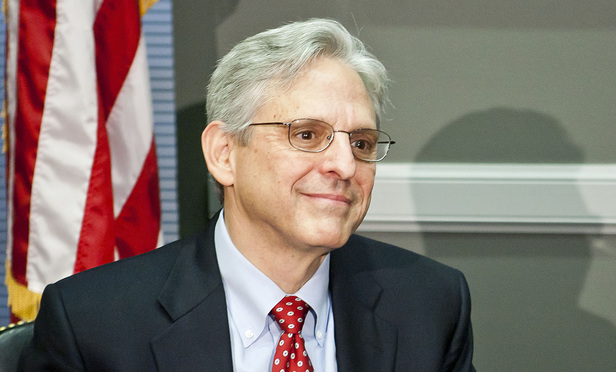Carl W Hittinger

March 06, 2017 | The Legal Intelligencer
Antitrust Legacy of High Court Nominee Gorsuch in Private PracticeLast month, we discussed the antitrust jurisprudence of Neil Gorsuch, currently of the U.S. Court of Appeals for the Tenth Circuit judge and nominee to the Supreme Court of the United States. Our discussion focused on three of Gorsuch's opinions during his decade-long tenure with the court of appeals. Even before Gorsuch was nominated to the Tenth Circuit, however, he had already made a name for himself in the antitrust world as a trial lawyer for both plaintiffs and defendants.
By Carl W. Hittinger and Tyson Y. Herrold
18 minute read

February 06, 2017 | The Legal Intelligencer
The Antitrust Points of View of Supreme Court Nominee Neil GorsuchLast March, we wrote a series of articles discussing Supreme Court Justice Antonin Scalia's antitrust legacy on the Supreme Court. We noted Scalia's admitted discomfort with the Sherman Act, specifically with holding corporate defendants, even monopolists, liable absent strong evidence of anti-competitive conduct. His likely successor appears to possibly hold similar views of the antitrust laws, ostensibly applying the Sherman Act to avoid replacing procompetitive, free-market behavior with judicially imposed, anti-competitive fiat, based on the record presented.
By Carl W. Hittinger And TYson Y. Herrold
17 minute read

December 05, 2016 | The Legal Intelligencer
FTC Still Ramping Up Antitrust Review of Health Care MergersLast month, we reported on the Federal Trade Commission's (FTC) steady filing of injunctions to block what are effectively local mergers of small health care providers. In 2007, the FTC filed suit in Saint Alphonsus Medical Center v. St. Luke's Health System, its first successful challenge to a hospital merger in recent history. Since then, the Obama administration-appointed FTC has appeared bolder in its approach to health care mergers, which have been on the uptick since the passage of the still-existing Affordable Care Act has encouraged providers to coordinate health care services and provide better service at a lower cost.
By Carl W. Hittinger and Tyson Y. Herrold
13 minute read

November 07, 2016 | The Legal Intelligencer
FTC Takes Action to Block Hospital MergersIn the 1990s, Federal Trade Commission (FTC) enforcement actions to block mergers between health care providers were a rare phenomenon successfully obtained. In many instances, state Attorneys General filled the role of watchdog, especially since hospital mergers were relatively small and implicated local markets. Many, like the Pennsylvania Attorney General, were unable to convince the courts that the mergers should be stopped. That scoreboard has changed dramatically in the last decade and, even more so, over the last several months.
By Carl W. Hittinger and Tyson Y. Herrold
14 minute read

September 30, 2016 | The Legal Intelligencer
The Antitrust Point of View of Hillary ClintonIn our last article we examined Donald Trump's experience as an antitrust defendant. In this article, we examine the Presidential candidate at the other podium on the debate stage. Unlike Trump, Hillary Clinton has not been a defendant in an antitrust lawsuit (or several times as the case may be with Trump). Further, unlike Trump, the Democratic candidate has made numerous statements that reflect what a Hillary Clinton presidency could mean for competition and consumers.
By Carl W. Hittinger and Julian D. Perlman
14 minute read

August 01, 2016 | The Legal Intelligencer
Donald Trump's Antitrust Entanglements: Part 2At the Republican National Convention, Donald Trump spoke approvingly of late Supreme Court Justice Antonin Scalia as a model for future Supreme Court nominees. We have previously written about the potential impact Scalia's death may have on the Supreme Court. In particular, we noted Scalia's reluctance to find antitrust violations even where judges and juries—triers of fact presented with all of the evidence—reached opposite conclusions in the rare antitrust case to go to judgment or verdict. This may not be surprising to some given Scalia's public statements that he never "understood" antitrust law "because it did not make any sense." Trump has been through the antitrust grist mill on several occasions, which may have shaped his own view as to whether the antitrust laws make any sense.
By Carl W. Hittinger and Julian D. Perlman
17 minute read

June 06, 2016 | The Legal Intelligencer
Antitrust, Appointments and Presidential Front-Runners: Part 1Substantial and substantive issues of national importance are often obscured by the usual myopic and frenzied focus on political talking points, sensational sound bites and collateral name-calling.
By Carl W. Hittinger and Julian D. Perlman
6 minute read

May 01, 2016 | The Legal Intelligencer
Scalia's Antitrust Legacy: Part 2, The Dissenting OpinionsIn March, we wrote about Justice Antonin Scalia's three majority opinions in substantive antitrust cases. Notably, Scalia also authored three dissenting opinions in substantive antitrust cases, in rapid-fire succession in 1991, '92 and '93. In the majority opinions, Scalia seized upon alternative, innocuous explanations for alleged anticompetitive conduct, even when an anticompetitive motive was equally if not more plausible, and in two cases reversed jury verdicts for plaintiffs. In the dissents, Scalia's skepticism regarding the antitrust laws is even more evident: Scalia does not attempt to explain away what some (including two juries) characterized as anticompetitive conduct, as in the majority opinions; rather, he recognized and accepted plaintiffs' characterizations of defendants' conduct (as required by the posture of the cases), but concluded that even so, plaintiffs could not find a remedy in the antitrust laws. Furthermore, in each dissent, he also would have had the court reverse the U.S. Court of Appeals for the Ninth Circuit and affirm the particular California federal district court in the case, and grant judgment for defendants on the pleadings or on summary judgment.
By Carl W. Hittinger and Julian D. Perlman
8 minute read

April 02, 2016 | The Legal Intelligencer
Supreme Court Nominee Garland: An Assessment of Antitrust ExpertiseLast month, our antitrust column was devoted to the late Justice Antonin Scalia's antitrust legacy on the U.S. Supreme Court, focusing on his three antitrust opinions for the majority. At that time, we promised to continue that analysis, focusing this month on Scalia's many antitrust dissents. However, history intervened and President Obama nominated Chief Judge Merrick Garland of the U.S. Court of Appeals for the District of Columbia Circuit to replace Scalia. In the wake of that controversial nomination, Garland has been subsequently heralded by some commentators as an antitrust expert who may have an important impact on antitrust cases before the high court. While Garland certainly has experience with antitrust matters, he has not said he is an antitrust expert. Indeed, we respectfully would not go so far as to classify him as an antitrust expert, as was, for example, Justice John Paul Stevens before he was elevated to the Supreme Court. (See "Before Joining Bench, Stevens Molded Antitrust Law," published May 4, 2010, in The Legal.) This article focuses on the substantive antitrust opinions in which Garland has joined or which he authored during his tenure on the D.C. Circuit since 1997.
By Carl W. Hittinger and Julian D. Perlman
15 minute read

March 05, 2016 | The Legal Intelligencer
Justice Scalia's Antitrust Legacy: Part 1, The Majority OpinionsDuring his 30 years on the U.S. Supreme Court, he wrote 104 majority opinions but only three of those addressed substantive antitrust issues.
By Carl W. Hittinger and Julian D. Perlman
8 minute read
Trending Stories
- 1Gibson Dunn Sued By Crypto Client After Lateral Hire Causes Conflict of Interest
- 2Trump's Solicitor General Expected to 'Flip' Prelogar's Positions at Supreme Court
- 3Pharmacy Lawyers See Promise in NY Regulator's Curbs on PBM Industry
- 4Outgoing USPTO Director Kathi Vidal: ‘We All Want the Country to Be in a Better Place’
- 5Supreme Court Will Review Constitutionality Of FCC's Universal Service Fund
More from ALM
- Legal Speak at General Counsel Conference East 2024: Match Group's Katie Dugan & Herrick's Carol Goodman 1 minute read
- Legal Speak at General Counsel Conference East 2024: Eric Wall, Executive VP, Syllo 1 minute read
- Legal Speak at General Counsel Conference East 2024: Virginia Griffith, Director of Business Development at OutsideGC 1 minute read



